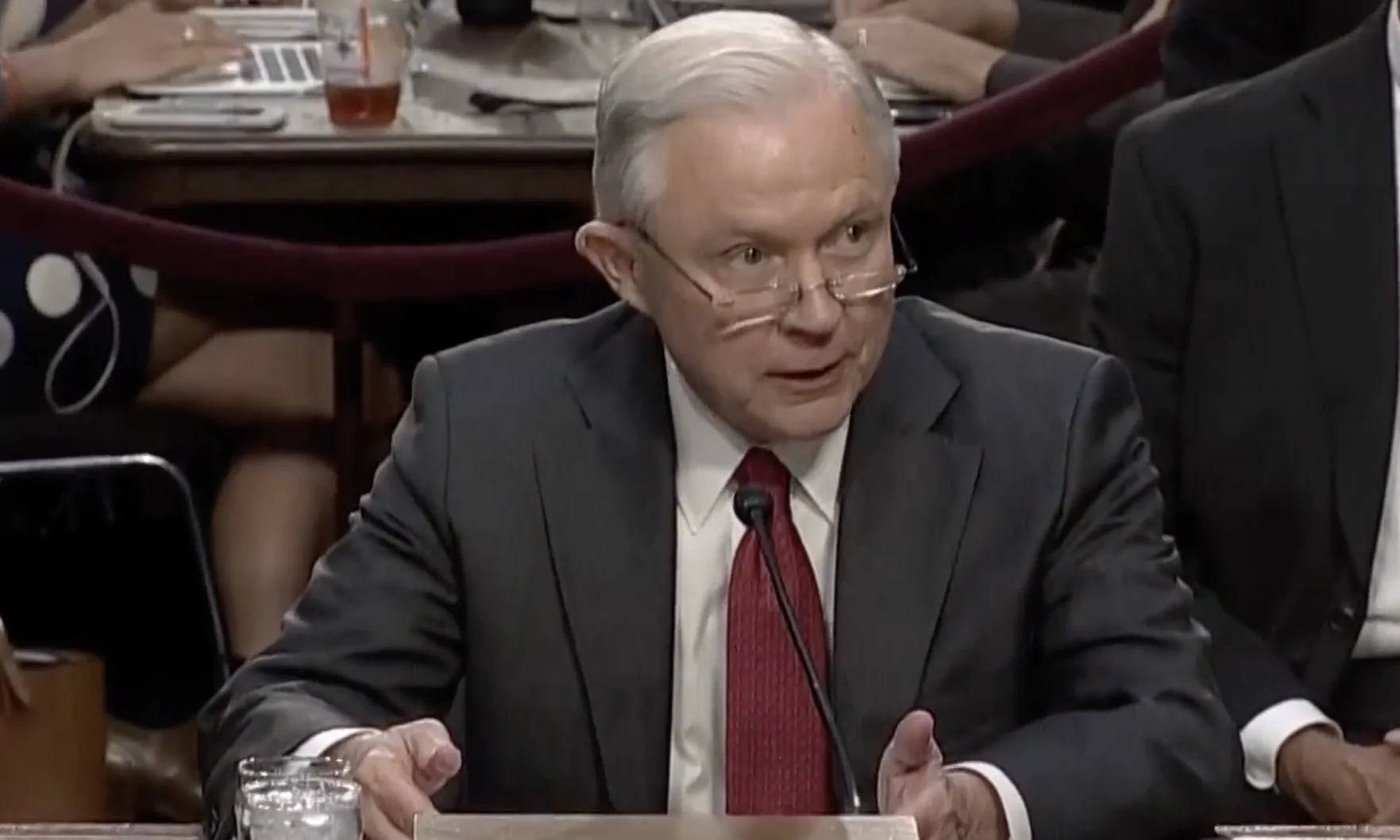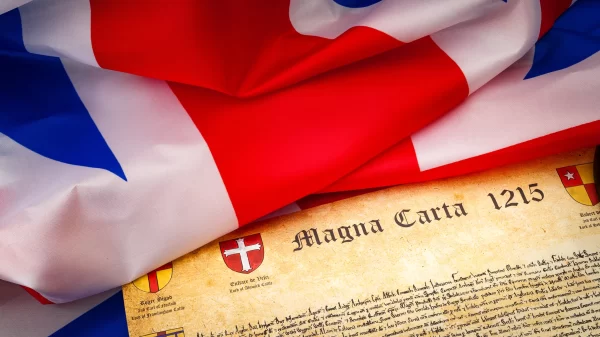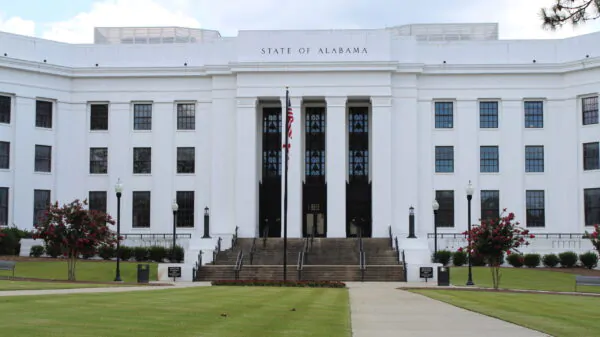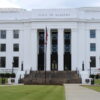By Brandon Moseley
Alabama Political Reporter
Friday, the Trump administration reversed Obama-era policies with new legal guidance issued to the Department of Justice by Attorney General Jeff Sessions regarding religious liberty.
Sessions issued guidance to all administrative agencies and executive departments regarding religious liberty protections in federal law.
“Our freedom as citizens has always been inextricably linked with our religious freedom as a people,” Sessions said. “It has protected both the freedom to worship and the freedom not to believe. Every American has a right to believe, worship, and exercise their faith. The protections for this right, enshrined in our Constitution and laws, serve to declare and protect this important part of our heritage.”
“As President Trump said, ‘Faith is deeply embedded into the history of our country, the spirit of our founding and the soul of our nation . . . [this administration] will not allow people of faith to be targeted, bullied or silenced anymore,’” Sessions continued.
“The constitutional protection of religious beliefs and the right to exercise those beliefs have served this country well, have made us one of the most tolerant countries in the world, and have also helped make us the freeist and most generous,” Sessions said. “President Trump promised that this administration would ‘lead by example on religious liberty,’ and he is delivering on that promise.”
The Attorney General’s office wrote that the memorandum was issued pursuant to President Trump’s Executive Order No. 13798 (May 4, 2017), which directed the attorney general to “issue guidance interpreting religious liberty protections in Federal law” in order “to guide all agencies in complying with relevant Federal law.”
The guidance interprets existing protections for religious liberty in federal law, identifying 20 high-level principles that administrative agencies and executive departments can put to practical use to ensure the religious freedoms of Americans are lawfully protected. Sessions also issued a second memorandum to the Department of Justice, directing implementation of the religious liberty guidance within the department.
The attorney general issued two memoranda. The first, addressed to all administrative agencies and executive departments, identifies 20 key principles of religious liberty. The guidance reminds agencies of their obligations under federal law to protect religious liberty and summarizes 20 key principles of religious-liberty protections that agencies can use in that effort. It explains that agencies should use these principles to protect religious liberty in all aspects of their work, including as employers, rule-makers, adjudicators, contract-and grant-makers and program administrators.
On specific policies, the guidance states that government may not exclude religious organizations from secular aid programs, and the IRS may not enforce the Johnson Amendment, which restricts tax-exempt organizations, including churches and religious organizations, from endorsing or opposing candidates for elected office.
Sessions’ second memorandum, addressed to DOJ components and United States Attorney’s offices, directs the implementation of that guidance within the department.
The 20 key principles are:
- The freedom of religion is a fundamental right of paramount importance, expressly protected by federal law.
- The free exercise of religion includes the right to act or abstain from action in accordance with one’s religious beliefs.
- The freedom of religion extends to persons and organizations.
- Americans do not give up their freedom of religion by participating in the marketplace, partaking of the public square, or interacting with government.
- Government may not restrict acts or abstentions because of the beliefs they display.
- Government may not target religious individuals or entities for special disabilities based on their religion.
- Government may not target religious individuals or entities through discriminatory enforcement of neutral, generally applicable laws.
- Government may not officially favor or disfavor particular religious groups.
- Government may not interfere with the autonomy of a religious organization.
- The Religious Freedom Restoration Act of 1993 prohibits the federal government from substantially burdening any aspect of religious observance or practice, unless imposition of that burden on a particular religious adherent satisfies strict scrutiny.
- RFRA’s protection extends not just to individuals, but also to organizations, associations, and at least some for-profit corporations.
- RFRA does not permit the federal government to second-guess the reasonableness of a religious belief.
- A governmental action substantially burdens an exercise of religion under RFRA if it bans an aspect of an adherent’s religious observance or practice, compels an act inconsistent with that observance or practice, or substantially pressures the adherent to modify such observance or practice.
- The strict scrutiny standard applicable to RFRA is exceptionally demanding.
- RFRA applies even where a religious adherent seeks an exemption from a legal obligation requiring the adherent to confer benefits on third parties.
- Title VII of the Civil Rights Act of 1964, as amended, prohibits covered employers from discriminating against individuals on the basis of their religion.
- Title VIl’s protection extends to discrimination on the basis of religious observance or practice as well as belief, unless the employer cannot reasonably accommodate such observance or practice without undue hardship on the business.
- The Clinton Guidelines on Religious Exercise and Religious Expression in the Federal Workplace provide useful examples for private employers of reasonable accommodations for religious observance and practice in the workplace.
- Religious employers are entitled to employ only persons whose beliefs and conduct are consistent with the employers’ religious precepts.
- As a general matter, the federal government may not condition receipt of a federal grant or contract on the effective relinquishment of a religious organization’s exemptions or attributes of its religious character.
The DOJ, earlier this year, demonstrated a shift in policy from the Obama administration as it commented on Zarda v. Altitude Express at the U.S. Federal Court of Appeals, which contends that Title VII of the Civil Rights Act of 1964 bans gender discrimination, but does not include sexual orientation or gender identity, in the workplace.
The guidance, today, demonstrates further that the DOJ recognizes that religious liberty principles are in fact stalwart, even when challenged by special interest groups.
“We commend President Trump for instructing Attorney General Jeff Sessions to send a strong message to the rest of America that religious freedom must be protected,” Mat Staver, founder and chairman of Liberty Counsel, said in a statement. “The President has reversed the Obama-era policies and committed to protecting and promoting the religious freedom upon which this nation was founded. The Department of Justice must now vigorously enforce all Americans’ civil right of free exercise of religious liberty. This is an extremely positive step in the right direction.”
This is being interpreted as meaning that Alabama-based EWTN and the Little Sisters of the Poor, who objected to having to provide access to abortifacients, sterilization and other procedures that they have a deep moral and ethical objection so their employees will not have to. The Little Sisters of the Poor, the Archdiocese of Washington, Bishop David Zubik of Pittsburgh and other Christian colleges and universities filed lawsuits over the mandate, and a bundle of cases made its way to the Supreme Court under Zubik v. Burwell, argued before the Supreme Court in 2016.
In response to the announcement on the revised rules, EWTN CEO Michael Warsaw said, “For more than five years, the HHS contraception mandate has forced Americans to violate their deeply held moral and ethical principles, without regard for the Constitution’s guarantee of religious liberty. EWTN filed a lawsuit against the government in February 2012, just days after the mandate rules were first published, and we have continued to fight for justice alongside many courageous believers. We are encouraged by today’s announcement.”
“Together with our legal team, we are carefully considering the exemptions announced today and the impact this may have on our legal challenge to the mandate, but we are optimistic that this news will prove to be a step toward victory for the fundamental freedoms of many Americans,” Warsaw said. “I invite Catholics, and all people of faith, to join me in continued prayer for our nation, for its leaders, and for the protection of liberty in the United States and around the world.”
It is also our present understanding that a pastor or church council could – under these rules – make political statement, and possibly even endorsements, without fear of losing their tax exempt status, according to these rules. The Alabama Political Reporter does not give legal advice, thus any interpretation about how this effects you, your church, your company, your insurance, tax exempt status, etc. should be made only after consulting with your legal and/or tax advice.
(Original reporting by Fox News, NBC news, the National Catholic Register, the Catholic News Service, and Catholics for America contributed to this report.)




















































